Throughout history, so many world leaders have fell victim to killings at the hands of the public. Everyone from Julius Caesar to Franz Ferdinand to William Perceval to Yitzhak Rabin has befallen this fate over history. Yet perhaps in the modern age, no nation has had worse luck in this field than the United States of America. With that said, we will now examine the Mount Rushmore of Assassinated American Presidents.
Please note, for this list, we are only listing the 4 heads of state and not presidents or leaders in another sense so do not expect the likes of Martin Luther King or John Lennon to crop up. Assassinated American President
Abraham Lincoln

The first Assassinated American President in US history was the infamous killing of “The Great Emancipator” Abraham Lincoln at the hands of John Wilkes Booth.
Originally only a part of a bigger plot to throw the Union party into disarray. Booth and other Confederate sympathisers planned to kill other politicians Andrew Johnson, William H. Seward and Ulysses S. Grant but in the end, only the attempt on “Honest Abe” was a success.
When the freer of the slaves was at Ford’s Theatre enjoying a rendition of ‘Our American Cousin’, he would be shot at point-blank range by starring actor of the production Wilkes Booth. After evading the weak security guarding Lincoln, Booth jumped awkwardly down onto the stage, breaking his leg, before proclaiming: “Sic Semper Tyrannus!”. This is a Latin expression translating as “thus always to tyrants” – the mortal words of the aforementioned Julius Caesar whom Wilkes once played in a theatre production.
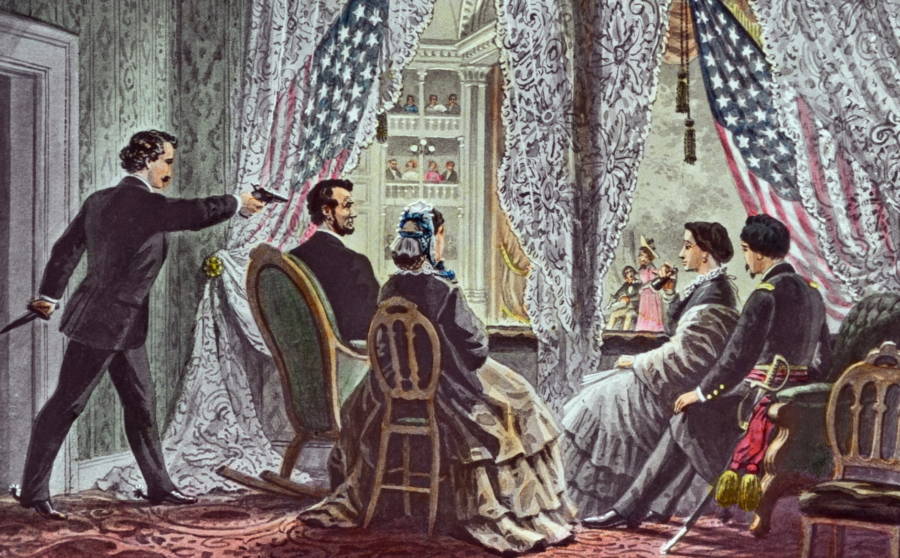
Surprised to find he was being depicted as a villain and not a hero, JWB quickly fled Washington prompting a 12-day manhunt with a reward for $100,000 (or about $1,675,000 today) for information relating to the whereabouts of the assassin. With Lincoln’s death rippling through the country, soldiers searched everywhere for Booth. It was lucky the actions of the murderer did not trigger another civil war like the one that had just ended. Killing Lincoln in Washington, he would successfully trek all the way to near Port Royal, Virginia.

The actor-turned-killer would have the barn where he was staying tracked down and then set ablaze when still inside. Finally exiting the blaze, Booth was shot dead by Sergeant Boston Corbett. On an aside, having taken Booth’s life, Corbett’s own death years later is up for debate as he is suggested to have been killed in 1894’s Great Hinckley Fire although there is no clarification of this claim.
What makes Booth so different to many other assassins throughout history such as Mark David Chapman or James Earl Ray is that whilst they did their significant murders for attention, Booth did not need this. Wilkes was already one of the best-known actors in the country as a star mostly working in Shakespearean plays.

James A. Garfield
Our next Assassinated American President, was the 20th US president James A. Garfield. Assassinated in 1881 at the hands of a clearly mentally unstable murderer: Charles J. Guiteau.
Garfield is – to this day – the 2nd shortest-serving US president as he would only last 199 days in office due to his killing. Ironically, working within Garfield’s cabinet at the time was Robert Todd Lincoln, the song of the only assassinated president at the time – Abraham Lincoln.
Killer Charles J. Guiteau evidently was illogical and delusional in his actions, having been declared insane in 1875 and set to be sectioned before escaping. After selling a few hundred copies of a book backing Garfield in the election, he took credit for winning and demanded a diplomatic role for his aid of the former Civil War solider-turned-politician. Sick of being ignored, he stalked and threatened James before deciding to attempt to murder the leader saying: “I leave my justification to God”.

Having chosen his gun of choice (a revolver with an ivory handle, picked over one with a wooden grip as he thought it would be a better museum exhibit after the killing), he waited for Garfield’s arrival at Washinton’s Baltimore and Potomac Railway Station on July 2nd. Shooting him from behind, a first shot grazed his shoulder only for a second one to lodge in his body behind his pancreas.
Rather surprisingly, Garfield hung onto life for many weeks afterwards, recovering well despite occasional bouts of illness.
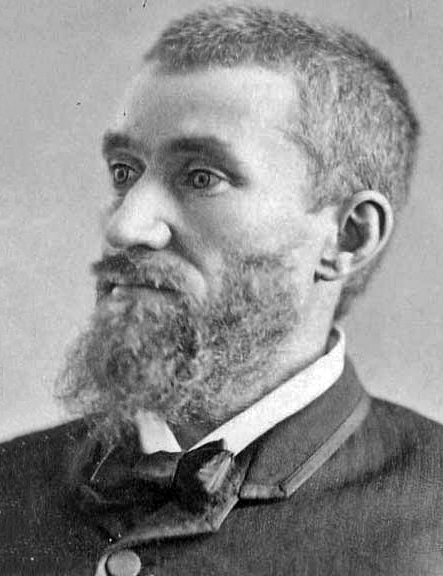
A rather odd person who tried to aid was Alexander Graham Bell. The “inventor” of the telephone tried to use a metal detecting device but such was ineffective due to the metal bed Garfield was lying on and the examination of only a single side of the body.
With pus-filled abscesses across his body and shedding 80-pounds to weigh the only 130lbs, he died on September 19th from infection. Believed to have been infected by the use of unclean hands inspecting his body, it is believed he likely would have lived had they left the bullet alone.
You won’t be surprised to know, the warped Guiteau’s court case was no less eccentric. Insulting his defence team, asking the audience for aids passed via notes and making testimony in lengthy poems, an insanity plea was used for one of the first times in such a high-profile case but he was found guilty and declared sane.
An attention-seeking until the end, he was hanged to death a year after the assassination, dancing his way to the gallows, waving and reciting a poem before his demise.
Chester A. Arthur took over from Garfield, much to the joy of Charles.
William McKinley
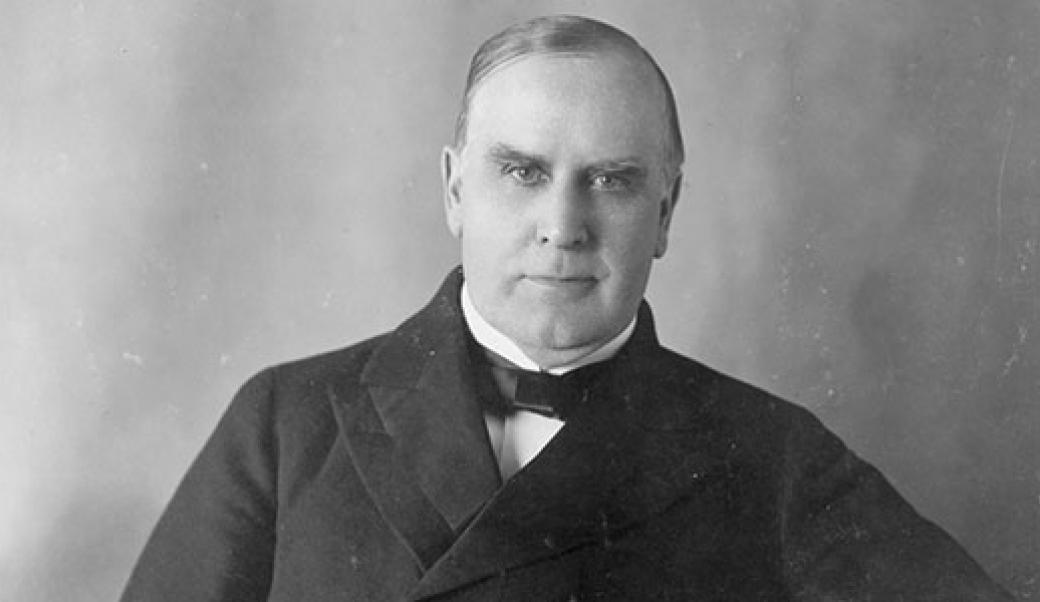
As the 19th century entered the 20th century, the USA was led by William McKinley. A man with a face of stone, McKinley is today ranked as an above-average US president with significant economic growth likely forging his legacy most whilst he also oversaw the Spanish-American War and its consequences and the Gold Standard Act of 1900. Another Assassinated American President.
McKinley’s death is not too dissimilar to Garfield’s. Whilst McKinley had already served a term as president; the sitting McKinley was a few months through into his 2nd term when shot and killed by Leon Czolgosz on September 6th, 1901. As the Polish-American anarchist was about to shake the hand of the arriving president, he shot McKinley with a revolver hidden under a handkerchief.
Shortly before the shooting, McKinley gave away his lifelong lucky charm – a red carnation.

The reasons for this attack include the assassin Czolgosz feeling the wrath of the Panic Of 1893 in which the US went through a time of political despair between 1893-1897, an issue aided significantly by William McKinley. Nonetheless, killer Leon saw the president as a symbol of oppression and felt it was his duty to usurp the leader.
After the shot, McKinley would remain alive for 8 days afterwards, seemingly recovering until passing away. However, it was not necessarily the gunshot that killed him but gangrene growing on the walls of his stomach and toxins passing into his blood that would befall him on September 14th. The means of the assassination, clinging to life and eventual death draw parallels to the aforementioned events that took place with James A. Garfield.

Leon Czolgosz was executed via electric chair for his actions with his last words being: “I killed the President because he was the enemy of the good people – the good working people. I am not sorry for my crime. I am sorry I could not see my father“. As for McKinley, his place in history would be forgotten as the immense contributions of Theodore Roosevelt would succeed William’s time in office.
McKinley’s killing had an impact that would change US presidential history forever. At the time, Mr McKinley was unaccompanied – without security. In Roosevelt’s reign, the Secret Service – previously part of the treasury – was now assigned the task of protecting the life of the American head honcho.
This has worked for the most part. 75% of presidential killings took place in a 36-year period whilst since the Secret Service in 1901, there has been a single killing in 120 years. Whilst this is most effective, it is not always.
John F. Kennedy
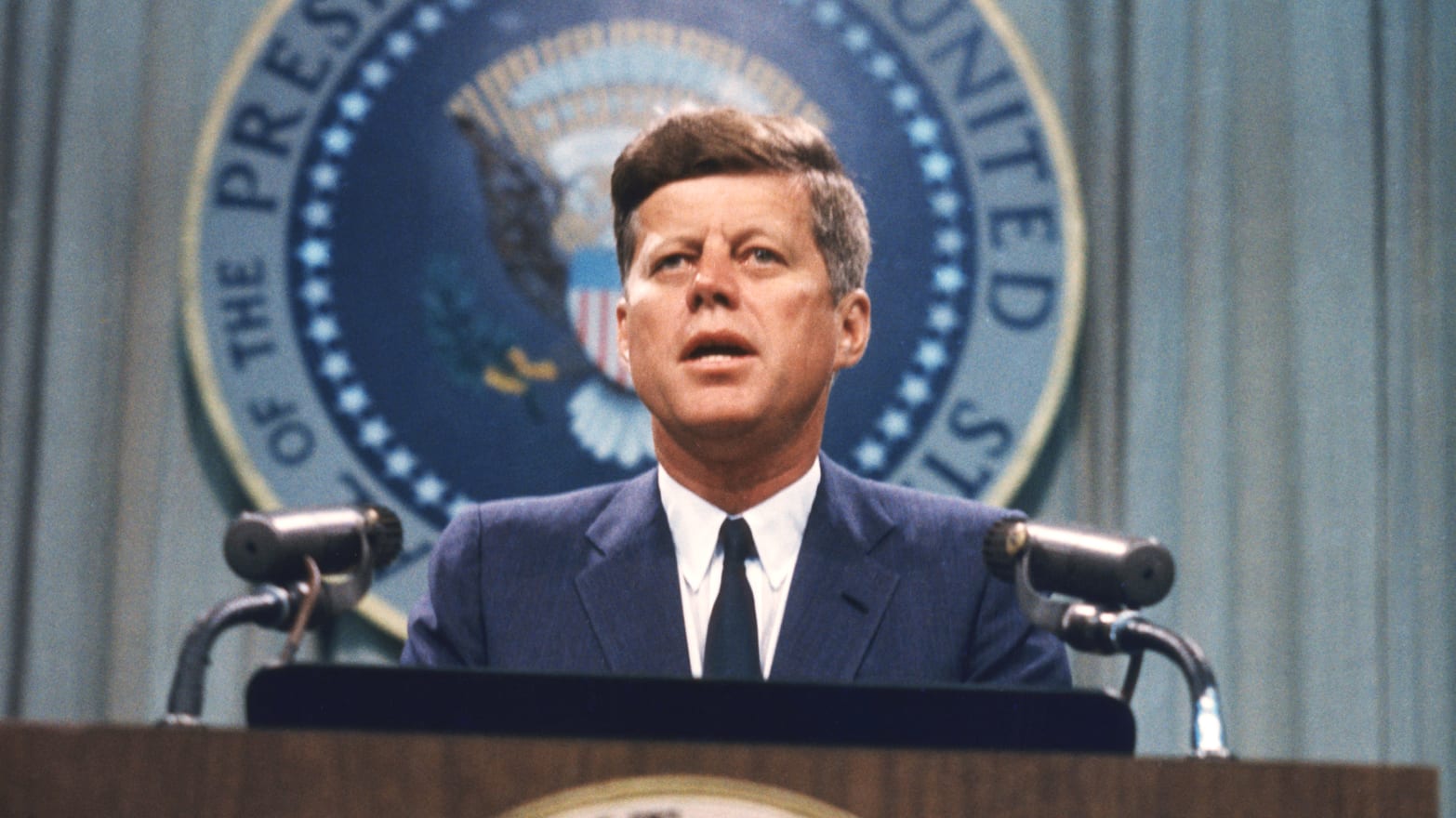
Perhaps the most famous assassinated American President of all time, the killing of JFK nearly 60 years ago has triggered countless conspiracy theories to this day. Whilst suspects such as the Umbrella Man, the KGB and Secret Service agent George Hickey have been thrown up amongst many others across the decades, the most widely accepted killer is Lee Harvey Oswald. With this, we will present the information best we can from official classifications without room for tinfoil hats.
Beating out future Watergate scandal president Richard Nixon for the presidential post, JFK enjoyed nearly 3 years atop the US in times of chaos. Forced to battle with nations such as Cuba, Korea and the USSR during the Cold War, the first Catholic president today is looked upon as one of the greatest leaders of the USA in the nation’s history and we can never tell if his legacy would have dwindled or excelled had he won the next election.
On November 22nd 1963, the president was riding his motorcade through Dealey Plaza in Dallas, Texas alongside wife Jacqueline and other members of his cabinet. Shot with two bullets in the back of the head, the footage once seen is never forgotten. It is weird in hindsight as only Jacqueline and the office who jumps at the back of the car seem to notice as others wait in a weird delay. These deadly shots were fired by Lee Harvey Oswald from a nearby building. He would be captured after fatally shooting local police officer J.D. Tippit, discovered in a movie cinema.
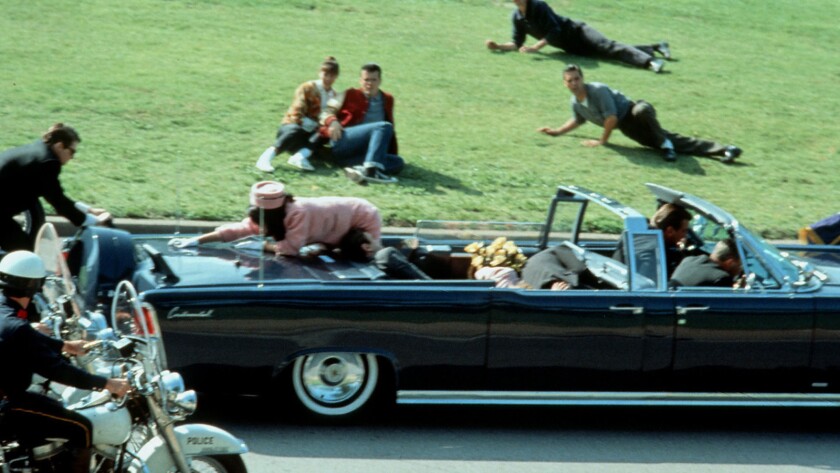
JFK was pronounced dead 30 minutes after the shooting when in hospital, with the live news coverage famously announced by legendary news anchor Walter Cronkite. With the nation in shock and at such a desperate, confusing and changing time in US history, it was a jarring turn of events.
We never got to hear Oswald confess – which perhaps gave rise to (and some credence to) the future theories about the JFK killing. Instead, 2 days after the assassination, Lee Harvey Oswald was being led through the Dallas Police Quarters basement to a city jail. The whole nation watched as Lee himself was shot on live TV as he was killed by nightclub operator Jack Ruby who lunged out of the crowd to shoot Oswald. Oswald would die soon after whilst Jack Ruby never truly saw any prison time as he passed away amidst an appeal.
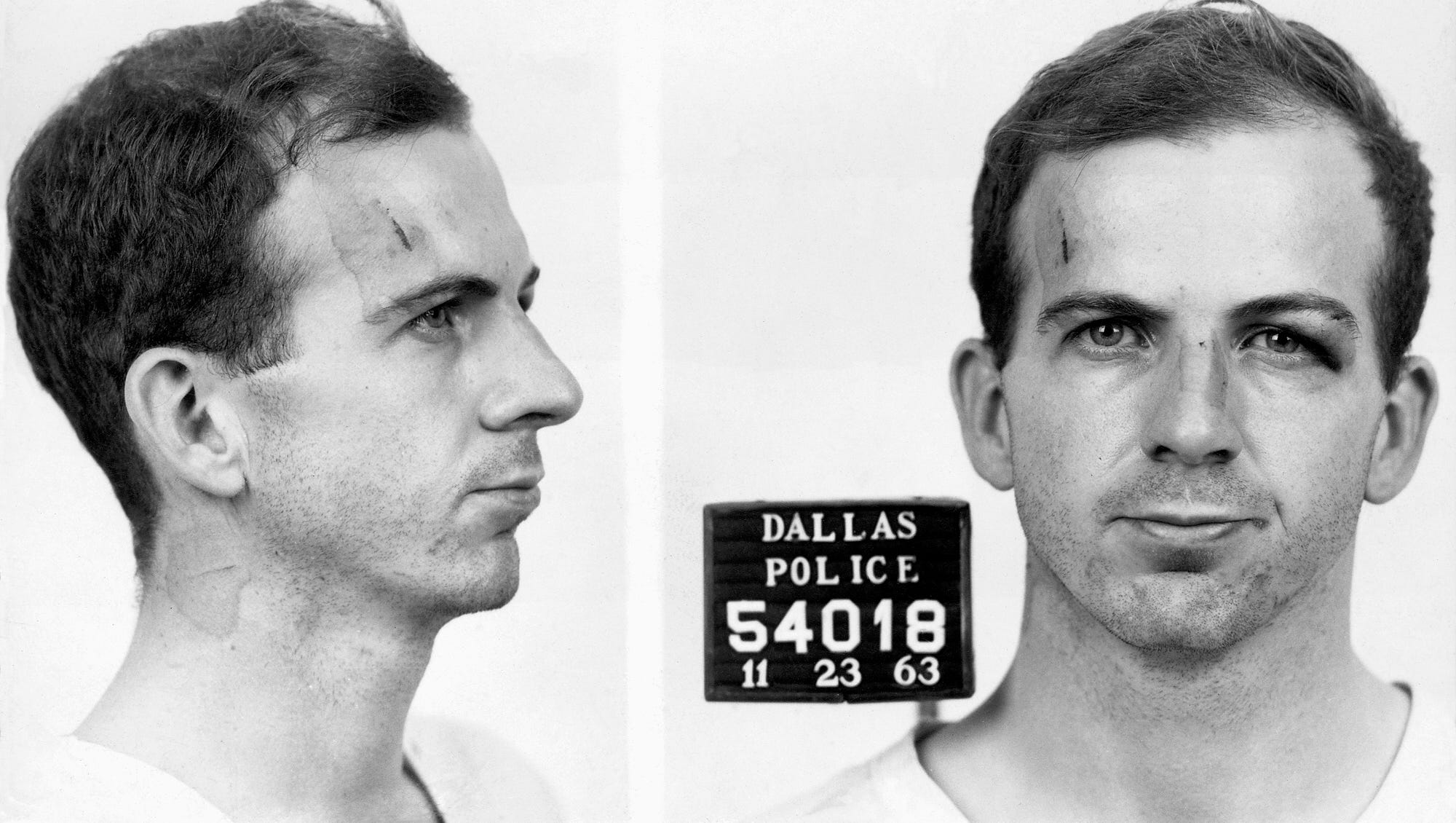
Ultimately, all kinds of things have been thrown up over the years as to the “real” reason behind the shooting of the 35th president of the United States. That said, one thing is for certain – there will forever be controversy around John F. Kennedy’s death. This debate lasting forever and a day perhaps might have been disclosed permanently had it not been for an overzealous and premature Ruby.
A gunshot heard around the world, I’m sure JFK’s death is something even you reading this has their thoughts on and that is what has become so enduring and notorious about perhaps the most defining moment of the 20th century.


